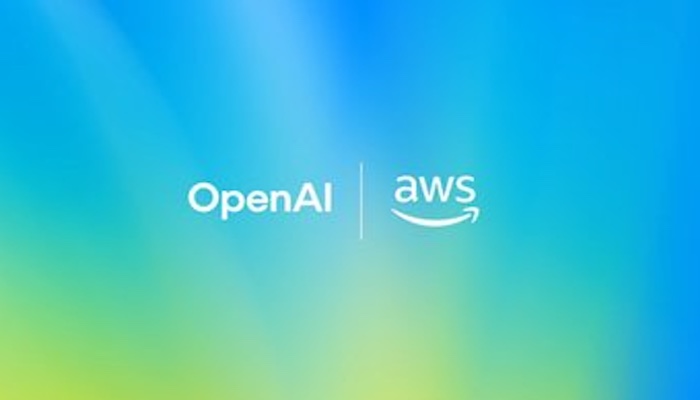
ChatGPT owner OpenAI has signed a $38bn (£29bn) cloud computing deal with Amazon, marking another major step in its strategy to secure large-scale computing power and reduce dependence on Microsoft.
The seven-year partnership gives OpenAI access to Amazon Web Services’ (AWS) infrastructure and Nvidia graphics processors to train its advanced artificial intelligence models.
“Scaling frontier AI requires massive, reliable compute,” said OpenAI co-founder and CEO Sam Altman. “Our partnership with AWS strengthens the broad compute ecosystem that will power this next era and bring advanced AI to everyone.”
The deal follows a significant restructuring at OpenAI last week, which saw it convert away from a non-profit status and revise its relationship with Microsoft to allow greater operational and financial freedom.
In 2025 alone, the AI firm has signed contracts worth over $1tn with technology companies including Oracle, Broadcom, AMD and Nvidia. The latest agreement with Amazon marks its first major deal with the e-commerce and cloud giant, signalling a move towards a diversified network of computing partners.
“The deal with AWS shows that OpenAI considers that its path to leadership is paved with getting access to as much computing power as it can get its hands on,” said Kim Forrest, chief investment officer at Bokeh Capital Partners.
She added that Microsoft “taking less of a control stake in the company has allowed relationships with near competitors to OpenAI’s funders possible.”
OpenAI, however, remains unprofitable, with Microsoft’s latest quarterly results revealing that the company lost $12bn in the last quarter alone due to heavy spending on AI development.
Following the announcement on Monday, Amazon’s shares surged to an all-time high, boosting its market valuation by $140bn (£106bn).
“AWS is uniquely positioned to support OpenAI’s vast AI workloads,” said Matt Garman, CEO of AWS.
The growing web of investments between major AI players, including OpenAI, Microsoft, Nvidia and Amazon, has attracted regulatory and investor scrutiny. Some analysts warn that the sector’s rapid expansion may signal an emerging AI bubble.
Speaking to the BBC last month, Altman admitted that “the investment loans are unprecedented,” but argued that “it’s also unprecedented for companies to be growing revenue this fast.”
Recent warnings from the Bank of England, the International Monetary Fund, and JP Morgan boss Jamie Dimon have highlighted concerns over the scale and pace of AI sector growth. Dimon told the BBC that “the level of uncertainty should be higher in most people’s minds.”
Faridah AbdulkadiriReply



